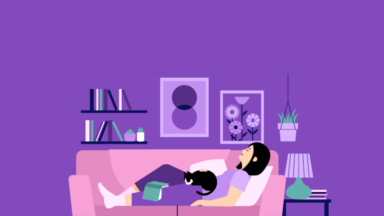
Sleep is a fundamental aspect of our lives, and when it’s disrupted, it can have a significant impact on our well-being. If you’ve been struggling with sleepless nights, you may wonder, “Will insomnia go away on its own?” In this blog post, we’ll explore the journey of insomnia, its potential causes, and what you can do to manage and improve your sleep. Understanding insomnia is the first step toward finding relief and achieving better rest.
The Insomnia Experience
Insomnia is more than just an occasional bad night’s sleep. It’s a sleep disorder characterised by difficulty falling asleep, staying asleep, or waking up too early and not being able to return to sleep. Insomnia can vary in severity and duration, but it typically falls into one of the following categories:
Acute Insomnia: This is often short-term and is usually triggered by specific events, such as stress, illness, or a change in environment. Acute insomnia tends to resolve on its own when the underlying cause is addressed.
Chronic Insomnia: Chronic insomnia is persistent and lasts for at least three nights a week for three months or longer. It may be related to underlying medical or psychological factors and often requires intervention to improve.
Potential Causes of Insomnia
To answer the question, “Will insomnia go away?” it’s important to consider the potential underlying causes:
Stress and Anxiety: Everyday stressors or significant life events can lead to acute insomnia. Managing stress through relaxation techniques can help improve sleep.
Medical Conditions: Chronic pain, asthma, gastrointestinal issues, and other medical conditions can contribute to insomnia. Treating the underlying condition is key to finding relief.
Medications: Some medications, especially stimulants, decongestants, and certain antidepressants, can interfere with sleep. If you think that medication may be contributing to your sleep issues, it’s worth discussing with your GP, who may adjust your medication if necessary.
Lifestyle Factors: Poor sleep habits, irregular sleep schedules, excessive caffeine or alcohol intake, and lack of physical activity can all contribute to insomnia.
Mental Health: Conditions such as depression and anxiety are often associated with sleep disturbances. Treating the underlying mental health condition is essential for improving sleep.
Managing and Improving Sleep
While the trajectory of insomnia varies from person to person, there are steps you can take to manage and improve your sleep:
Sleep Hygiene: Establish healthy sleep habits, such as maintaining a consistent sleep schedule, creating a relaxing bedtime routine, and ensuring your sleep environment is comfortable and conducive to rest.
Stress Management: Practise stress-reduction techniques such as meditation, deep breathing exercises, or progressive muscle relaxation to calm your mind before bedtime.
Limit Stimulants: Avoid caffeine and alcohol close to bedtime, as they can disrupt sleep.
Seek Help: If your insomnia persists or worsens, you may benefit from a Cognitive Behavioural Therapy treatment like Sleepio. Cognitive Behavioural Therapy for Insomnia (CBT-I) is a highly effective and non-drug treatment option that addresses the root causes of insomnia and helps you regain control of your sleep.
Sleepio works with you to develop a personalised insomnia treatment plan, empowering you to challenge negative thought patterns, establish healthy sleep habits, and enjoy restful nights of sleep.
In summary, whether insomnia will go away on its own depends on its underlying causes and duration. While acute insomnia often resolves when the triggering factors are addressed, chronic insomnia may require intervention. The good news is that with the right strategies and support, you can manage and improve your sleep, leading to better overall well-being.

Here’s our latest

Do Natural Light Alarm Clocks Actually Work?
If you are one of the many people abruptly awoken each morning to the sound of an alarm jolting you…

Diazepam and Insomnia
Diazepam, also known as Valium, is a type of medication called a benzodiazepine that is commonly used to treat anxiety…

Chronic Fatigue Syndrome and Sleep
A good night’s sleep should leave you feeling refreshed, but for some people, chronic fatigue syndrome and insomnia turn this…

